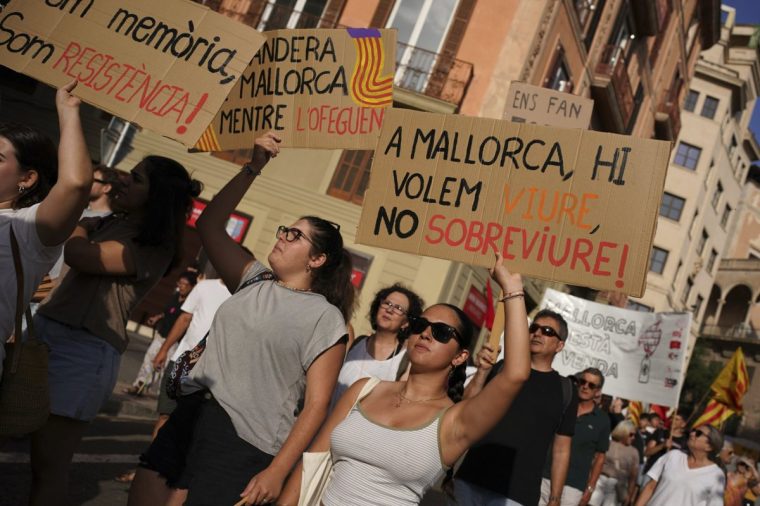Single family and room rentals, often advertised on Airbnb, will be covered by the new restrictions
MADRID – The capital of the Spanish island of Mallorca has brought in new measures to try to crack down on overtourism. On Tuesday, Palma said it had banned party boats along the seafront near the city after complaints from locals, and had also prohibited new tourist rentals and youth hostels.
Until now, tourist flats or hostels were only banned from blocks containing multiple families.
Single family and room rentals, which are often advertised online by letting agencies such as Airbnb, will be covered by these new restrictions, it said. Additional hostels are also banned from opening and those that are already in operation will be encouraged to convert to hotels or private housing.
Jaime Martínez, the mayor of Palma, announced on Tuesday that the new measures would take place with immediate effect. He said this was part of a strategy to improve the quality of tourism in Palma and to halt illegal holiday rentals.
Palma has managed to reduce the amount of illegal tourist rentals – those that are not registered with the local authorities – by 18 per cent over the past two years, according to trade organisation Exceltur. This compares to a 3.7 per cent average across 25 major Spanish cities.
“We’re attracting tourists with greater purchasing power,” Martínez told reporters. “This isn’t a coincidence – it’s the result of a clear strategy.”
The mayor said 639 legal tourist rentals in Palma will continue to exist but will not be replaced if they close.

Palma has been among the Spanish cities experiencing major protests in which locals claim overtourism has pushed up the price of housing and forces many residents out of city centres.
Nuria Salom, of SOS Residents, one of 85 protest groups in the Balearic Islands that have staged demonstrations, said the mayor’s measures were not enough to solve the island’s underlying problem.
“The truth is this is not going to fix the problem. It will not solve problems like the scarcity and the high cost of housing because the tourist flats which are operating will carry on,” she told The i Paper.
“Foreign speculation is a big problem in Mallorca,” Salom added. “Until the government stops the British, German, and Swedish from buying houses in Mallorca, the problem is not anywhere near resolved.”
Javier Pascuet, a consultant specialising in sustainable tourism, innovation and smart destinations and a former tourism director of Palma, said banning tourist rentals will not necessarily improve the “quality” of tourists.
“We always say that the quality of tourism isn’t defined by where people stay, but by why they come and how they behave,” he said.
“You can have responsible travellers in short-term rentals and very disruptive ones in five-star hotels. What matters is the purpose of the trip and the kind of relationship visitors establish with the local community.”
Pascuet added: “If Palma wants to move towards a more sustainable model, it needs to focus on purpose and behaviour, not just on supply restrictions. Maybe restricting party boats will do the job more.”
“Focus on the purpose of the trip,” he said. “A quality tourist is not an avatar.”
